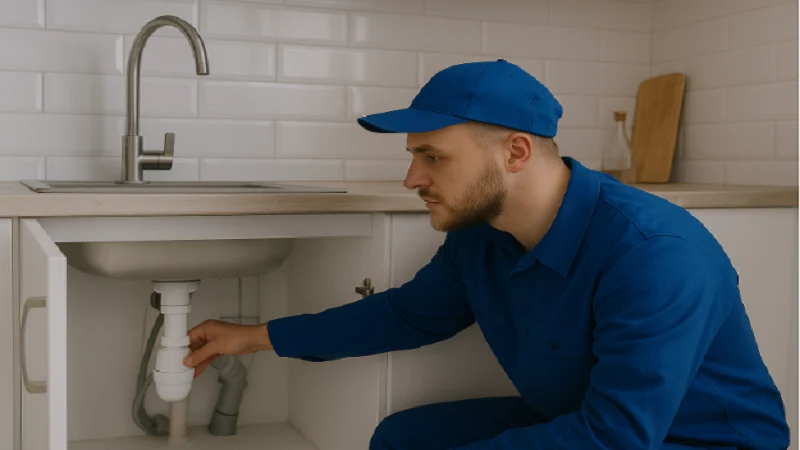For landlords in Glasgow, maintaining a rental property isn’t just about ensuring the space looks appealing—it’s about keeping everything functional and safe for tenants. Among the many responsibilities that fall under property management, plumbing ranks high on the list. When plumbing emergencies occur, they can disrupt tenants’ lives, cause serious property damage, and lead to costly repairs if not addressed swiftly.
This guide explores the most common plumbing emergencies landlords face in Glasgow, how to prepare for them, and the steps you can take to protect both your property and your tenants.
Why Plumbing Emergencies Are a Big Deal for Landlords
Unlike cosmetic issues such as a scuffed wall or worn carpet, plumbing problems are urgent. A burst pipe or major leak doesn’t just inconvenience tenants—it can cause water damage to floors, walls, and even neighbouring properties in multi-unit buildings. Additionally, unresolved plumbing issues may put landlords at risk of breaching tenancy agreements, especially if tenants are left without essentials like running water or a working toilet.
In short: plumbing emergencies are more than maintenance tasks; they’re business-critical responsibilities.
The Most Common Plumbing Emergencies in Glasgow Rentals
Plumbing emergencies can take many forms, but some are particularly common in Glasgow’s rental properties:
1. Burst Pipes
Cold Glasgow winters make pipes vulnerable to freezing and bursting. A burst pipe can release gallons of water within minutes, causing extensive damage if left unchecked.
2. Blocked Drains and Toilets
Tenants may try to clear blockages themselves, but DIY attempts often worsen the issue. A blocked toilet or drain that overflows is both unpleasant and urgent.
3. Boiler Breakdowns
Glasgow tenants rely heavily on central heating systems. A sudden boiler failure, especially in the colder months, is considered an emergency that landlords are expected to fix promptly.
4. Leaking Fixtures
A dripping tap might seem minor, but leaks from sinks, showers, or water heaters can add up to significant water loss and structural damage over time.
5. Flooding from Appliances
Washing machines and dishwashers are common culprits. A failed seal or hose can quickly cause kitchen or utility room flooding.
Landlord Responsibilities in Plumbing Emergencies
In the UK, landlords are legally obligated to keep water, gas, and heating systems in safe, working condition. This means:
- Timely Repairs: If a plumbing emergency arises, landlords must act quickly to arrange repairs.
- Health and Safety Compliance: Tenants have a right to clean water and safe sanitation.
- Communication: Landlords should maintain clear communication with tenants, providing updates on repair timelines and ensuring temporary solutions are available when possible.
Preparing for Plumbing Emergencies
The best way to deal with a plumbing emergency is to prepare for one. Here are steps landlords in Glasgow can take:
1. Maintain Regular Inspections
Schedule periodic checks of plumbing systems, especially before winter. Look for signs of wear on pipes, boilers, and fixtures.
2. Educate Tenants
Provide tenants with simple guidance: how to shut off the main water valve, what to do in case of leaks, and when to call for help.
3. Keep Emergency Contacts Ready
Build a relationship with a reliable local plumber who can respond to emergencies around the clock. Share these details with tenants to avoid delays.
4. Budget for Repairs
Plumbing emergencies are rarely cheap. Keeping a contingency fund ensures landlords can act quickly without financial hesitation.
First Steps During a Plumbing Emergency
When a tenant calls with a plumbing crisis, landlords should:
- Stay Calm and Gather Details – Ask what happened, when it started, and whether the tenant has turned off the water supply.
- Advise Immediate Action – Instruct tenants to shut off the water or stop using the affected fixture until professional help arrives.
- Arrange Professional Repairs – Contact a trusted plumber who can respond quickly to prevent escalation.
- Document the Incident – Keep a record of the emergency, including photos if possible, for insurance and maintenance tracking.
Why Reliable Emergency Plumbing Support Matters
In a city like Glasgow, where older housing stock often comes with aging plumbing systems, emergencies can strike at any time. Having access to dependable, round-the-clock support isn’t a luxury—it’s a necessity. Landlords who rely on trusted local services can ensure their tenants’ safety while protecting their investment from costly damage.
Final Thoughts
Plumbing emergencies in rental properties are stressful for both landlords and tenants, but with the right preparation and professional support, they don’t have to become disasters. By conducting regular inspections, educating tenants, and keeping a reliable plumber on call, landlords can handle emergencies quickly and effectively.
Ultimately, being proactive not only prevents damage but also builds trust with tenants—a factor that can reduce turnover and keep properties profitable in the long run.
